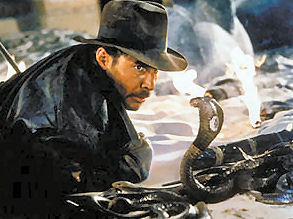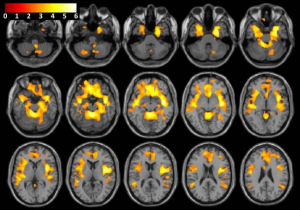
A new meta-study appearing in Current Directions in Psychological Science reviews research with infants and toddlers, and finds that we aren’t born afraid of spiders and snakes, but we can learn these fears very quickly. One theory about why we fear spiders and snakes is that natural selection may have favored people who stayed away from these potentially poisonous creatures.
Interestingly, several studies have found that it’s easier for both humans and monkeys to learn to fear evolutionarily threatening things than non-threatening things. For example, a study from Sweden showed that you can teach people to associate an electric shock with either photos of snakes and spiders or photos of flowers and mushrooms – but the effect lasts a lot longer with the snakes and spiders. Similarly, research from the US shows that monkeys that are raised in the lab aren’t afraid of snakes, but they’ll learn to fear snakes much more readily than flowers or rabbits.
“What we’re suggesting is that we have these biases to detect things like snakes and spiders really quickly, and to associate them with things that are yucky or bad, like a fearful voice,” says co-author Vanessa LoBue of Rutgers University.
“The original research [suggests] two important things that make snakes and spiders different,” LoBue continues. “One is that we detect them quickly. The other is that we learn to be afraid of them really quickly.” Her research on infants and young children suggests that this is true early in life, too – but not innate, since small children aren’t necessarily afraid of snakes and spiders.
Related:
Squirrels Use Snake Eau de Cologne
Nature vs Nurture Debate Goes Public
Is Subconscious Perception the Root of All Evil?


















Comments are closed.